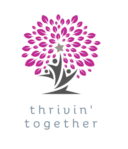
By Stephanie White, Financial Education Specialist, Associate at thrivin’ together
Why this matters
When people picture gambling harm, they often see a man. For too long, support systems, research, and funding have focused on men leaving women’s experiences overlooked and under-supported.
But women are gambling too. Quietly. Increasingly. And the harm is real.
Financial harm from gambling may be hidden, but its effects are everywhere:
- Overdrawn bank accounts
- Buy Now Pay Later debts piling up
- Maxed-out credit cards
- Unpaid bills, payday loans, and constant financial juggling
As someone who works with women across the UK, I see the unique ways gambling harms women ways that are deeply connected to our roles as caregivers, earners, and the glue that holds families together. And the evidence backs this up.
The financial reality for women
Women are more likely to:
- Work part-time (38% of women vs 13% of men)
- Be in low-paid or insecure jobs (often care, cleaning, retail, hospitality)
- Take on caring responsibilities (60% of unpaid carers are women)
- Experience economic abuse (1 in 6 women)
- Live in households with lower financial resilience, especially single mothers
This creates a perfect storm. When you’re the one holding everything together, you’re often the last one to be held. In that space—between responsibility and exhaustion gambling can sneak in as a moment of escape, a quick dopamine hit, or the hope that one win could make things better.
The female gambling narrative
Unlike stereotypes, many women aren’t gambling for thrills they’re seeking relief or stability. Research shows women are more likely to gamble to relax, cope with boredom, or manage mental health challenges. For many, gambling is a coping mechanism, not a competitive hobby.
Women aged 18–34 are the fastest-growing group of online gamblers and are significantly more likely to suffer gambling harm in silence, due to stigma. It’s rarely about greed. It’s about survival. Yet, the more women turn to gambling, the more their financial stability crumbles and the more isolated and ashamed they feel.
The cost of silence
Nearly one million women in the UK are at risk of gambling harm, but only a small fraction ever reach out for help. Silence means women are less likely to:
- Recognise early signs of gambling-related financial harm
- Reach out for support
- Talk openly to friends, GPs, or employers
- Access financial education that reflects their reality
Research shows women often internalise blame and shame when their finances spiral due to gambling especially when children or dependants are involved. Financial harm can linger long after gambling stops: damaged credit, missed rent, court letters, or debt in your name because of someone else’s addiction. This impacts not just your wallet, but your confidence, safety, and future.
How financial literacy can help to heal
As an Associate at thrvin’ together, I work with women affected by gambling harm to rebuild from the bottom up. Not just budgets but belief in themselves. Because financial education isn’t about maths. It’s about power.
Financial education can:
- Help women recognise financial harm and stop the spiral
- Provide tools to manage money on low or fluctuating incomes
- Address emotional triggers that lead to overspending or gambling
- Create a path towards financial freedom—even from a standing start
- Open conversations in families, workplaces, and communities
Women respond best to support that is holistic, trauma-informed, and delivered without judgement especially when financial education is part of the recovery journey.
That’s the power of community and education especially when it’s led by lived experience
Why a gendered approach to gambling harm is paramount
To truly support women, we must:
- Integrate financial education into women’s recovery pathways
- Train frontline workers to spot financial red flags and hidden debt
- Address the emotional and behavioural side of money,especially in motherhood and care roles
- Break the cultural silence around women, money, and shame
Women don’t gamble in a vacuum. Many do it in the context of inequality, pressure, and emotional labour.
Hope for the future
For women facing these challenges, financial education and practical strategies can provide crucial support.
Buy the Shoes is an empowering, transformational financial capability programme run at thrivin’ together. The next cohort is running in October and it’s an opportunity for those who want to invest in their own financial education and take control of their finances. It’s a place for women to learn, share and enhance their financial literacy.
The programme is fully funded so there is no fee. The only investment required is from those who want to dedicate their time to learn and be part of an amazing community.
References
- Office for National Statistics (2023). Employment by Industry and Gender
- Carers UK (2023). Facts About Carers in the UK
- Surviving Economic Abuse (2020). The Cost of Covid-19 for Women Experiencing Economic Abuse
- Resolution Foundation (2022). Living Standards and Inequality in the UK
- Gambling Commission (2021). Exploring Women and Gambling
- GambleAware (2023). Annual GB Treatment and Support Survey
- GamCare Women’s Programme (2021). Experiences of Women Affected by Gambling-Related Harms
- GamCare (2023). Women’s Experience of Gambling Harm
